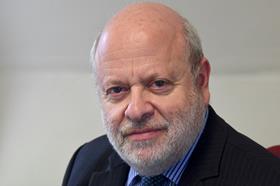The Legal Services Board (LSB) is consulting on ongoing competence in the legal profession.

It says that while regulatory resources are devoted to pre-qualification training and to discipline during a legal professional’s career, ‘there is no regular, formal assessment of legal professionals’ competence during their careers.’
This consultation would doubtless not have arisen – at least in relation to solicitors – had the SRA not abandoned any interest in structured and targeted CPD. Solicitors used to have a CPD regime which looked like that of their counterparts in many other countries, with evidence required of particular courses taken, maybe even by authorised providers. But the SRA decided that that was too blunt an instrument, which took up too much of their resources to police. And so they threw out the whole thing and replaced it with – nothing.
Well, not exactly nothing. There is a requirement that solicitors must provide a proper standard of service, which is different to a rule which requires CPD. Under the SRA’s current regime, solicitors can decide that they are up to date and competent and therefore need not undertake any CPD.
There are two serious problems with the SRA’s present approach, what I will call a parental problem and a philosophical problem.
The parental problem is this. If it is to be considered as acting like a parent, the SRA has decided that it will not require Little Johnny and Suzy to go to school. They can educate themselves. But it reserves the right to beat them if it finds that they do not know the name of the capital of Venezuela. This is an unusual approach to education.
The legal equivalent of the capital of Venezuela are the rules on anti-money laundering (AML). There is no SRA rule that all solicitors undertake such training regularly. We are still subject to EU law, and such training is mandatory in around half of EU Member States. In England and Wales, it is up to the law firm to identify which employees require training.
Yet, on the other hand, the SRA reserves the right to come down like a ton of bricks on those firms which are not complying with the rules. Just last month, the SRA announced that it ‘will test a sample of firms’ anti-money laundering policies every month as it ramps up efforts to combat misconduct in the profession … The SRA currently spends around 2.5% of its overall budget on AML activities, which is expected to rise in 2020/21 to 3% of the budget. The regulator has identified money laundering as a priority risk …’.
Would it not be more sensible – more cost-effective, more in line with a sophisticated regulator - for the SRA to put in place a mandatory AML training regime, at least for those most at risk of breaching the rules? But the SRA has thrown away that power.
Then we come to the philosophical problem. The SRA’s current CPD regime is a high trust model. It trusts solicitor to understand what training they need and to go ahead and undertake it. The difficulty is that our training needs fall into two categories: the known unknowns and the unknown unknowns. It is all very well to trust solicitors to train themselves on those areas where they know that their knowledge is a little dodgy (the known unknown), but unwise to trust them in areas where they don’t even know they have a knowledge gap (the unknown unknown). No-one can take remedial action for that.
You might think that the SRA would not know the legal profession’s ‘unknown unknowns’. But there are obvious topics, like new technology. I recently interviewed a young solicitor from a large City firm who said that most of the solicitors in that firm had no clue about the structure, working and legal consequences of the IT systems they were using on behalf of clients. Most – in fact, I would wager nearly all – solicitors fall within that category.
This is not only a problem with current systems, but also with future technology that solicitors might adopt. The American Bar Association has made it part of its model rules that ‘a lawyer should keep abreast of changes in the law and its practice, including the benefits and risks associated with relevant technology’. Yet the SRA has given up the possibility of leading solicitors down this path.
The LSB is contemplating regular, formal assessments of solicitors throughout our careers. That carries the risk of our old CPD regime, in becoming a blunt and expensive tool. It would be better to try out something else first: that the SRA introduces a power to require CPD of groups of solicitors in a sophisticated and targeted way. It would answer many problems if the SRA had this power now.
Jonathan Goldsmith is Law Society Council member for EU matters and a former secretary general of the Council of Bars and Law Societies of Europe. All views expressed are personal and do not necessarily reflect the views of the Law Society Council
































2 Readers' comments